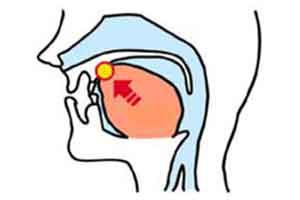- Home
- Editorial
- News
- Practice Guidelines
- Anesthesiology Guidelines
- Cancer Guidelines
- Cardiac Sciences Guidelines
- Critical Care Guidelines
- Dentistry Guidelines
- Dermatology Guidelines
- Diabetes and Endo Guidelines
- Diagnostics Guidelines
- ENT Guidelines
- Featured Practice Guidelines
- Gastroenterology Guidelines
- Geriatrics Guidelines
- Medicine Guidelines
- Nephrology Guidelines
- Neurosciences Guidelines
- Obs and Gynae Guidelines
- Ophthalmology Guidelines
- Orthopaedics Guidelines
- Paediatrics Guidelines
- Psychiatry Guidelines
- Pulmonology Guidelines
- Radiology Guidelines
- Surgery Guidelines
- Urology Guidelines
Inhale through nose to enhance memory: Study

A recent study reveals that inhaling through nose heightens memory and response to fearful stimuli, whereas the effects disappear while mouth breathing.
The study was published in the Journal of Neuroscience.
According to Northwestern Medicine, the rhythm of breathing creates electrical activity in the human brain that enhances emotional judgments and memory recall.
They found that individuals were able to identify a fearful face more quickly, if they encountered the face when breathing in compared to breathing out.
Individuals were also more likely to remember an object if they encountered it on the inhaled breath than the exhaled one. The effect disappeared if breathing was through the mouth.
"One of the major findings in this study is that there is a dramatic difference in brain activity in the amygdala and hippocampus during inhalation compared with exhalation," said lead study author Christina Zelano at Northwestern University Feinberg School of Medicine.
"When you breathe in, we discovered you are stimulating neurons in the olfactory cortex, amygdala and hippocampus, all across the limbic system," Zelano added.
They suggested that the amygdale- a roughly almond-shaped mass of grey matter inside each cerebral hemisphere, involved with the experiencing of emotion - is strongly linked to emotional processing, in particular fear-related emotions.
For the study, they asked about 60 participants to make rapid decisions on emotional expressions in the lab environment while recording their breathing.
The participants were presented with pictures of faces showing expressions of either fear or surprise.
The findings indicate that when faces were encountered during inhalation, subjects recognised them as fearful more quickly than when faces were encountered during exhalation.
These effects diminished when subjects performed the same task while breathing through their mouths.
Thus, the effect was specific to fearful stimuli during nasal breathing only.
In an experiment aimed at assess memory function, the same participants were shown pictures of objects on a computer screen and were asked to remember them.
Later, they were asked to recall those objects.
The researchers found that recall was better if the images were encountered during inhalation.

Disclaimer: This site is primarily intended for healthcare professionals. Any content/information on this website does not replace the advice of medical and/or health professionals and should not be construed as medical/diagnostic advice/endorsement or prescription. Use of this site is subject to our terms of use, privacy policy, advertisement policy. © 2020 Minerva Medical Treatment Pvt Ltd